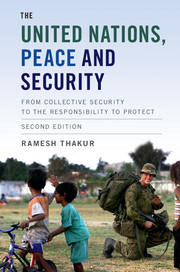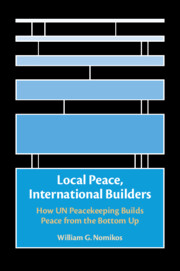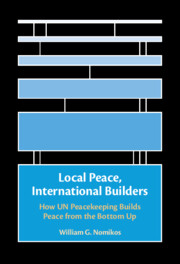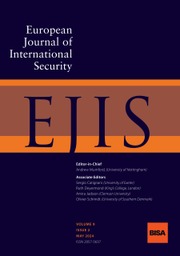The United Nations, Peace and Security
Ending humanitarian atrocities has become as important for the United Nations as preventing interstate war. This book examines the transformation of UN operations, analysing its changing role and structure. Ramesh Thakur asks why, when and how force may be used, and argues that the growing gulf between legality and legitimacy is evidence of an eroded sense of international community. He considers the tension between the United States, with its capacity to use force and project power, and the United Nations, as the centre of the international law enforcement system. He asserts the central importance of the rule of law and a rules-based order focused on the United Nations as the foundation of a civilised system of international relations. This book will be of interest to students of the United Nations and international organisations in politics, law and international relations departments, as well as policymakers in governmental and non-governmental international organisations.
- Covers the entire international peace and security policy agenda - will appeal to all analysts and practitioners of international policy
- Locates the Responsibility to Protect in the broader context of the international and UN policy agenda from 1945 to 2015
- The breadth and depth of analysis is both comprehensive and authoritative
- Has an easy and accessible writing style - will appeal to a broad cross-section of people interested in learning about the main trends in global affairs
Reviews & endorsements
'[This] is an ambitious, up-to-date and timely book that is set in a contemporary post-9/11 context. … The book will benefit those interested in international politics, international organization, international law, international security, human rights, and peace and conflict studies.' Arenla Jamir, Academic Council on the United Nations Systems
Product details
April 2017Hardback
9781107176942
444 pages
235 × 158 × 28 mm
0.75kg
Available
Table of Contents
- 1. Pacific settlement, collective security and international peacekeeping
- 2. Peace operations and the UN-US relationship
- 3. Human security and human rights
- 4. International criminal justice
- 5. International sanctions
- 6. The nuclear threat
- 7. International terrorism
- 8. Kosovo 1999 and Iraq 2003 as unilateral interventions
- 9. Afghanistan, Libya and Syria: UN-authorised interventions and non-intervention
- 10. From humanitarian intervention to R2P: cosmetic or consequential?
- 11. The development and evolution of R2P as international policy
- 12. Reforming the United Nations
- 13. The political role of the United Nations Secretary-General.










